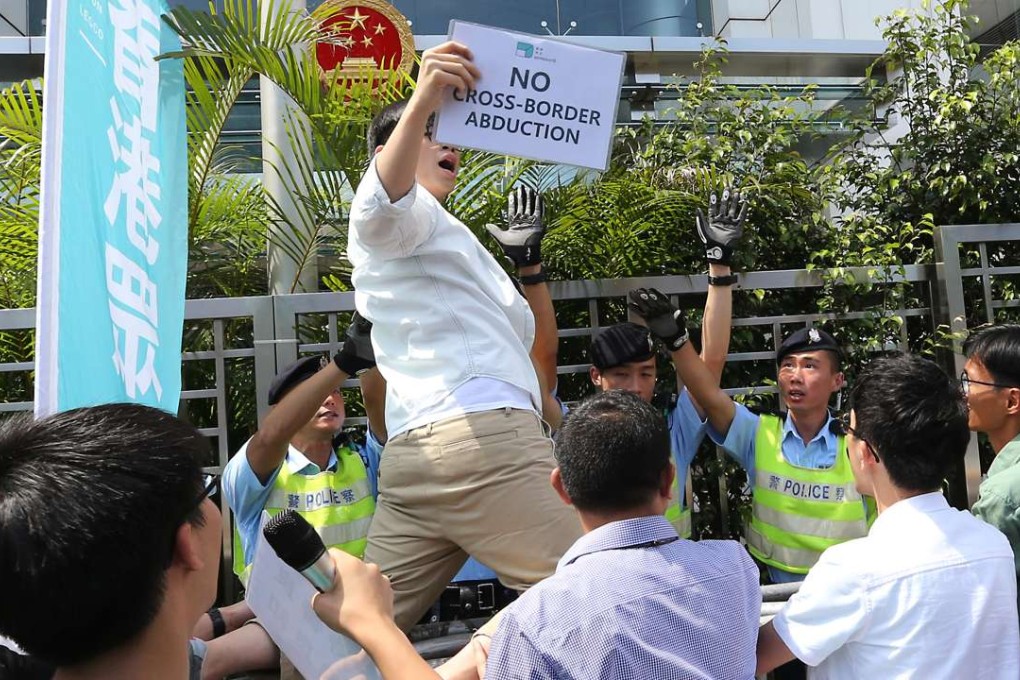Outrage expressed in Hong Kong over missing bookseller, but no answers forthcoming
Chinese foreign ministry says mainland authorities were entitled to handle Lam Wing-kee’s case as he had violated local laws, but Democrat Albert Ho maintains Lam is embroiled in a political conflict

The Beijing and Hong Kong governments are facing a storm of citywide condemnation and protests over their failure to explain the case of the missing booksellers and clarify cross-border jurisdictional rights, after one of them made explosive revelations about his eight-month detention in mainland China.
The foreign ministry would only say on Friday that Causeway Bay bookseller Lam Wing-kee, a Hongkonger and Chinese national, had broken mainland laws and the authorities across the border were within their rights to handle his case.
Acting as chief executive while Hong Kong’s leader, Leung Chun-ying, is on holiday, Financial Secretary John Tsang Chun-wah stonewalled awkward questions, sticking to the government’s official line that it was looking into the matter.
Confronted with Lam’s claim that he had been kidnapped by agents from the mainland’s secretive central investigation team while crossing the border to Shenzhen last October, the foreign ministry stressed that Beijing was determined to keep Hong Kong’s governing “one country, two systems” formula in place.
“Lam Wing-kee is a Chinese citizen, and he has violated China’s laws on the mainland. Related authorities in China are authorised to handle the case in accordance with the law,” foreign ministry spokeswoman Hua Chunying said on Friday.